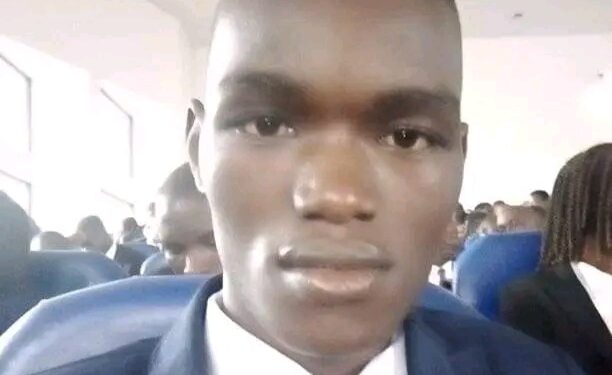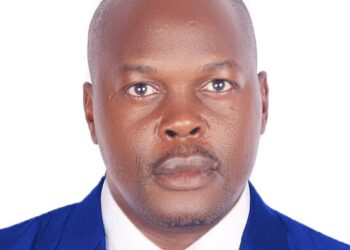Democratization after the reformation has changed the face of politics of Uganda, both at national and international level from the tales of horrors like the constitutional crisis of 1966, the military dictatorship of Idi Amin (1971-79), the three post Amin interim governments (1979-80) and the 1986 civil war.
While there is broad agreement that political parties play an important role in the consolidation of democracy, there is little agreement on what particular qualities the parties should have.
The dynamics of model relations and the form of political party activities with democratic principles are increasingly a concern in Uganda which is a worry to the future of political parties and the country’s democracy at large.
The process of institutionalizing democracy is ultimately largely determined by the institutionalization of political party organizations as an integral part of the democratic system itself where by political parties are expected to exhibit the highest democratic transparency like ‘free and universal’ participation of members to these organizations, which is not only a theory but a myth in all the key political parties in Uganda. We expect to see the depersonalization and organizational differentiation of these political organizations by sole individuals or clicks of individuals.
Delight accountability should be the second issue of democratizing these political parties.
Every normal organization grows and develops naturally according to its own timeline. This occurs through transitions within political parties, thus political parties should be given unlimited freedom to do political communication, political socialization, and political recruitment of new members who may be university students, gullible citizens, the middle class.
Arguing that political parties in Uganda are significantly an important tool of a consolidated democratic system, yet at the same time political parties are still weak institutionally is a wrong measure of democracy. The parties rest more on the charisma of sole leaders or clicks of people, not on the modern organizational structuring system. This also justifies the frequent occurrence of disunity in political parties that resulted in the emergence of political frustration of cadres and society, and the process of democratic consolidation itself.
Political parties in Uganda are actually nothing more than political vehicles for a group of ruling elites which intends to satisfy its own ‘lust of power’. Political parties serve only as a tool for the lucky few who succeed in winning the voice of the gullible people, to enforce certain public policies at the expense of the general will.
In the recruitment process there is no good linkage between political parties and civil society. The civil society is viewed only numerically as a number and a threat to the establishment, not as a constituent that must be respected and championed. Community organizations are only placed under bow,as a political machine that mobilizes the masses only during campaigns or by elections, not as the basis of the party’s political struggle.
More so, political parties act not to be part of the social movement which should influence policy and control the state, but only act as “political vehicles” to gain power and more power. As a result of it, that is why our MPs are oriented only on power and wealth (driving the most expensive cars of any parliament found in the whole world and increasing their net pay salaries whenever they wish)
So far people have not received political education, especially from political parties due to suppressive laws on political freedoms like the useless Public Order Management, resulting in millions of traditional voters who are particularly vulnerable to mobilization malpractices. Political parties have not played an adequate role in political education to the public. Until now the majority of Ugandan voters no matter what political party, are apathetic (ignorant), ‘less-educated and critical’ floating mass and not critical in facing the political process. As a result, participative political culture (civic culture) has not been established.
Consolidation of democracy in Uganda should become the main political agenda of reform. One of the main conditions of the realization of democratic consolidation is the holding of free and fair elections like in the neighboring Kenya free of military presence and arbitrary arrests as the case has been in the previous elections.
Military presence in electoral processes is a weird act and a gross democratic indiscipline which totally demeans the delightful democratic process as it deters the ideal of universal participation, and acts as a tool of suppression for the voices that would express themselves. National armies and other security apparatus are not supposed to involve themselves in the electoral process as they are presumed to be an ethical entity that ought to safeguard (protect) or restore the sovereignty of the citizens after the delightful democratic process.
Further democratic consolidation also involves changes in attitudes and institutions that normalize political democracy. Political parties should be allowed to recruit and to freely reach out to citizens without any suppressive mechanisms inclusive of the security apparatus and any suppressive laws to political freedoms.
Unless otherwise, if most if not all of the above democratic standards are set up for the political parties and political environment, the democracy in Uganda will remain fragile, and dire to the actors inform of the ranging disagreements within each political party right now, brutality by the security apparatus that ought to be completely out of politics (nonpartisan) in a guise of law enforcing but in actual sense ‘suppression,’ the mistrust between Civil Society Organizations and the political elite will remain tense, and the future of the country’s democracy lies in ‘door drums,’ and some funny behaviors of military coups or popular uprisings will crop up (GOD FORBID).
Byamukama Richard Bard is a lawyer and a student of masters in security and strategic studies, trained from Kabalye National Police Training School and Great Lakes Institute of Security and Strategic Studies
Do you have a story in your community or an opinion to share with us: Email us at editorial@watchdoguganda.com













